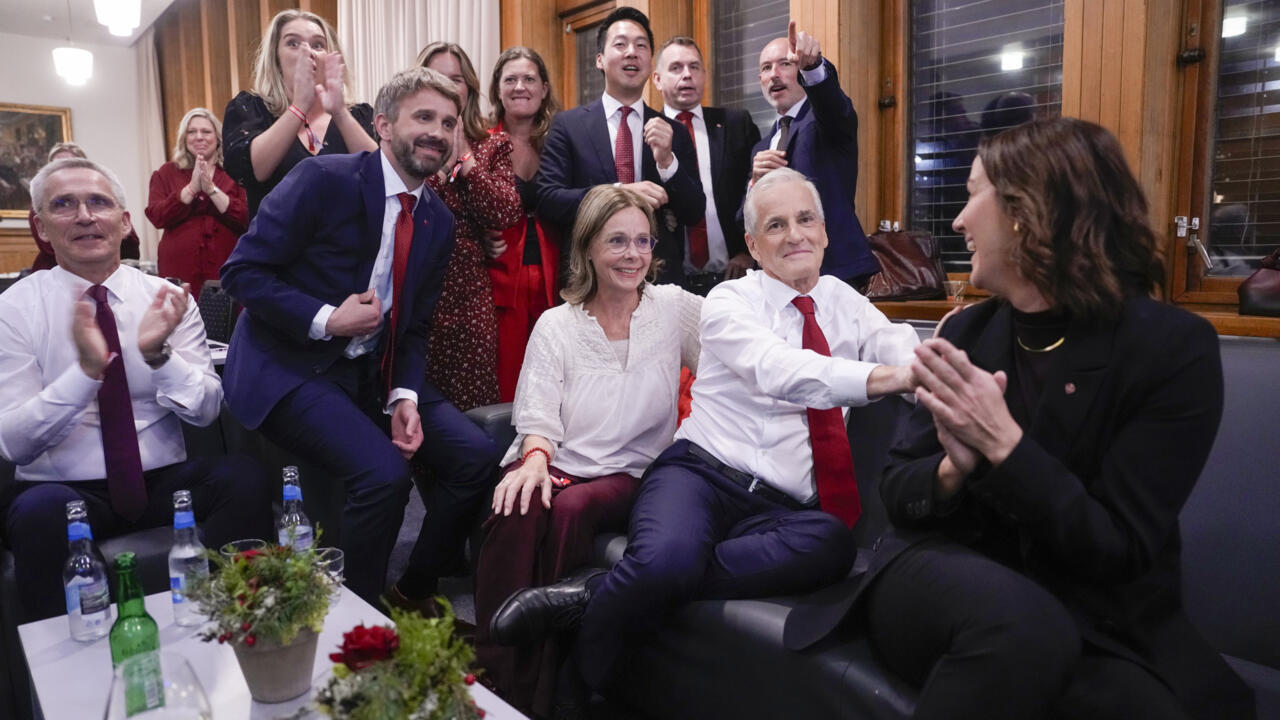Norway's Labour Party Wins Parliamentary Election Amid Right-Wing Surge
Norway's Labour Party, led by Prime Minister Jonas Gahr Støre, narrowly retained power in the September 8, 2025 parliamentary election, overcoming a historic surge from the right-wing, anti-immigration Progress Party.

Norway’s Labour Party, under Prime Minister Jonas Gahr Støre, secured a second term in office after a closely contested parliamentary election on September 8, 2025. The center-left bloc, composed of four parties, surpassed the 85-seat majority threshold in the 169-member Storting, winning 87 to 89 seats according to near-final counts. This outcome enables Støre’s Labour-led coalition to continue governing, despite mounting pressure from right-wing parties.
Labour Holds On Amid Right-Wing Gains
The election was marked by a record performance from the anti-immigration Progress Party, which doubled its share of the vote compared to 2021 and emerged as the leading opposition force with approximately 24 percent. This surge, driven in part by younger male voters and an aggressive social media campaign, pushed the Progress Party ahead of the traditional Conservative Party, which suffered its worst result in two decades. Progress Party leader Sylvi Listhaug celebrated the historic gains, stating, “Tonight, we are going to celebrate the best score in our history, and my goal is for this to be just the beginning,” while warning of “difficult” years ahead for Norwegians and businesses.
Prime Minister Støre acknowledged the narrow margin of victory, telling supporters, “We knew it would be close, and it was. We knew we’d have to give it our all, and we gave it our all… We did it.” He emphasized that the result demonstrated the continued viability of Social Democratic parties in Europe, even as right-wing movements gain ground across the continent.
Key Issues: Wealth Tax and Coalition Talks
The campaign centered on domestic economic issues, with Labour vowing to retain Norway’s longstanding wealth tax, which imposes levies on assets and shares exceeding 1.76 million kroner. The Progress Party, buoyed by influencers and social media, called for the tax’s abolition, while the Conservatives advocated for its reduction. Støre defended the tax as a matter of fairness and solidarity, arguing that removing it would benefit only the wealthiest Norwegians.
With the left-wing bloc’s majority slim and the Progress Party emboldened, coalition negotiations are expected to be protracted. Labour is likely to continue leading a minority government, relying on support from its left-leaning partners. The final composition of the Cabinet and key policy agreements will be determined in the coming weeks, as Norway’s King Harald prepares to swear in the new government.
Broader Context and International Implications
The election unfolded against a backdrop of shifting geopolitics, including the ongoing war in Ukraine and the influence of U.S. policies. While the campaign focused primarily on domestic concerns, the results reflect broader European trends of rising right-wing populism and debates over wealth distribution. Norway, a wealthy nation of 5.6 million, remains a bellwether for the resilience of center-left governance in the face of populist challenges.